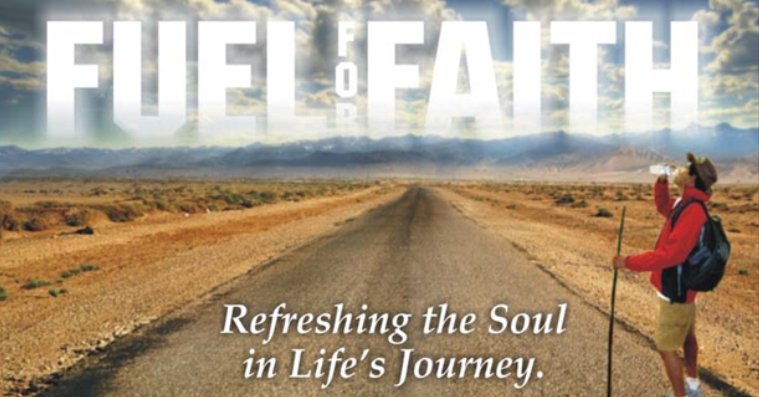
“The real trouble with this world of ours is not that it is an unreasonable world, nor even that it is a reasonable one. The commonest kind of trouble is that it is nearly reasonable, but not quite” writes G. K. Chesterton in his book Orthodoxy. It is always exciting to connect dots, to discover and make sense of what we see, hear or read. I don’t know about you, but honestly I used to have this constant urge to figure out puzzles, unfold mysteries and solve problems. I use to think that everything out there will eventually make sense if we only took some time to study or discover, but the longer I live as a Christian the more I realize that there are many things in this world that are beyond our comprehension and will always remain as paradoxes on this side of eternity.
A paradox is often defined as a statement that is seemingly contradictory or opposed to common sense and yet it has a deep insight or truth hidden within the statements. When I was a young Christian I prayed and was hoping that God will slowly clarify the mysteries and paradoxes of life. As I grew in my spiritual life I understood that it is more important to recognize the paradoxes of life and live with them by faith instead of persisting to understand and explain the paradoxes of Christian life. The early disciples of Jesus Christ were called “men who turned the world upside down” (Acts 17:6) because that is the only way these men could help a world that has already turned downside up. When Jesus preached his Sermon on the Mount (the Beatitudes in Matt 5: 1- 8), many of his listeners were shocked because his teaching were totally counter cultural. Anybody who is stuck in their culture cannot understand God’s ways because His ways are different from ours.
When Jesus preached his Sermon on the Mount many of his listeners were shocked because his teaching were totally counter cultural. Anybody who is stuck in their culture cannot understand God’s ways because His ways are different from ours.
“The Christian faith consists of a whole host of sacred mysteries – mysteries that are best spoken of through the language of paradox. For example, we hold to the mystery of the Trinity (God is one and three), the mystery of the incarnation (Jesus is fully divine and fully human), the mystery of grace (we are saved by grace and yet called to work out our salvation through works of faith, hope, and love), the mystery of humanity (we are both material and immaterial beings), and the mystery of holiness (we are both saint and sinner – indeed, only saints know they are sinners). Because the Christian faith is saturated in divine mystery, the challenge of the Christian life is not to intellectually know the mysteries (which is impossible), but rather, to indwell – to live or abide in – the mysteries” writes Pastor Richard J. Vincent in his article Living Paradoxes.
The Christian loses his life to save it and is in danger of losing it if he attempts to preserve it… He is strongest when he is weakest and weakest when he is strong. Though poor he has the power to make others rich, but when he becomes rich his ability to enrich others vanishes.
Here are a few paradoxes taught in the New Testament: Jesus said “Those who find their life will lose it and those who lose themselves for my sake will find it” (Matt 10:39), “The last shall be first, and the first last” (Matt 20:16), “Those who humble themselves will be exalted and those who exalt themselves will be humbled.” (Luke 14:11). The apostle Paul wrote “”If any one among you think that he is wise in this age, let him become foolish that he may become wise” (1 Cor 3:18), “when I am weak, then I am strong” (2 Cor 12:10), We carry death in this body so that the life of Jesus may be manifested in our body ( 2 Cor 4:10). No natural mind can ever understand, make sense or accept these teachings, in fact God is not expecting his children to understand these paradoxes, but he expects us to trust him and obey his teachings though they don’t make much sense to us now. This is part of “the righteous shall live by faith” journey.
A W Tozer in his book “That Incredible Christian” writes “The Christian loses his life to save it and is in danger of losing it if he attempts to preserve it… He is strongest when he is weakest and weakest when he is strong. Though poor he has the power to make others rich, but when he becomes rich his ability to enrich others vanishes. He has most after he has given most away and has least when he possesses most… He is wisest when he knows that he knows not and knows least when he has acquired the greatest amount of knowledge. He sometimes does most by doing nothing and goes furthest when standing still… The Christian believes that in Christ he has died, yet he is more alive than ever before and he fully expects to live forever”.
Christian life is filled with mysteries and paradoxes, it is definitely a wonderful blessing to figure out things and explain some mysteries in life, but if we don’t understand or accept the fact that there are mysteries which belong only to God (Duet 29:29), we will soon become discouraged, disillusioned and probably forsake the faith. Parker Palmer in his book “The promise of Paradox” describes the tension of life in these words: “The deeper our faith, the more doubt we must endure; the deeper our hope, the more prone we are to despair; the deeper our love, the more pain its loss will bring: these are a few of the paradoxes we must hold as human beings.” The point of Christian life is not to eliminate doubt, despair and pain; it is to help us grow through them to develop faith, hope and love. So the next time you don’t understand something, don’t despair or doubt God, it’s probably just a paradox of life you have to learn to live with and become a deeper Christian.
The deeper our faith, the more doubt we must endure; the deeper our hope, the more prone we are to despair; the deeper our love, the more pain its loss will bring: these are a few of the paradoxes we must hold as human beings.
– – Author: Rev. Francis Burgula – –
